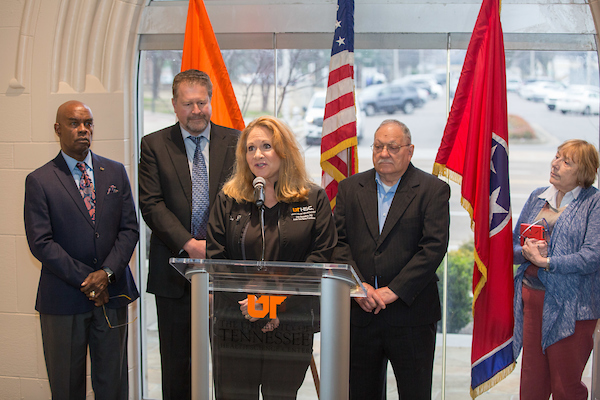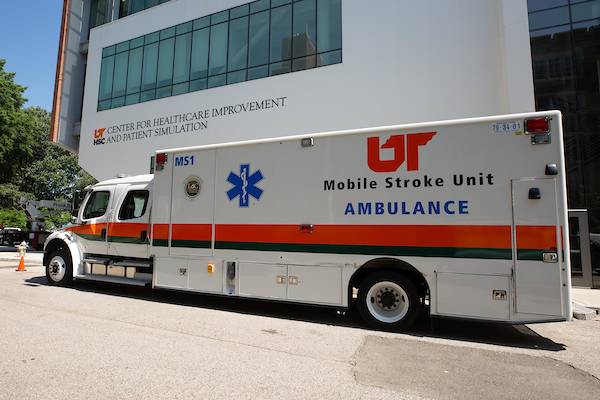Stroke Research
Nurse scientists at the UT Health Science Center College of Nursing lead improvements in stroke care through research.


Professor Anne Alexandrov, PhD, RN, AGACNP-BC, CCRN, ANVP-BC, NVRN-BC, FAAN, is considered the leading international nursing expert in acute stroke management. She has been funded by the National Institutes of Nursing Research for $2.3 million on a five-year multisite clinical trial titled, Zero-Degree Head Positioning in Acute Large Vessel Ischemic Stroke, or ZODIAC, that is dramatically changing practice for patients suffering from acute large vessel occlusion stroke. The trial tested a novel head positioning intervention in the pre-thrombectomy period of care in 92 patients at 12 sites, and was closed by the Data and Safety Monitoring Board on Nov. 1, 2023, due to the overwhelmingly positive results of 0-degree head positioning. The clinical trial’s conclusion was that 0-degree head positioning is safe and imparts stability and clinical improvement in large vessel occlusion stroke patients during the pre-thrombectomy period, making head positioning an important rescue procedure.
Dr. Alexandrov also served as the chief nurse practitioner on the Mobile Stroke Unit that launched in Memphis in 2016. She is the Editor-in-Chief of the journal Stroke Clinician, the official journal of the Association of Neurovascular Clinicians (ANVC). Her current program of research is exploring post-thrombectomy vascular dynamics in relation to resumption of activity, the use of specialty stroke units as a method to improve stroke patient outcomes, and sonothrombolysis in patients requiring transport to a higher level of care services for thrombectomy. Dr. Alexandrov has authored more than 150 original scientific publications related to her work in the area of stroke-reperfusion therapies, experimental blood flow augmentation strategies, and stroke center development and credentialing, and holds a U.S. patent for ultrasound-enhanced thrombolysis and perfusion.
